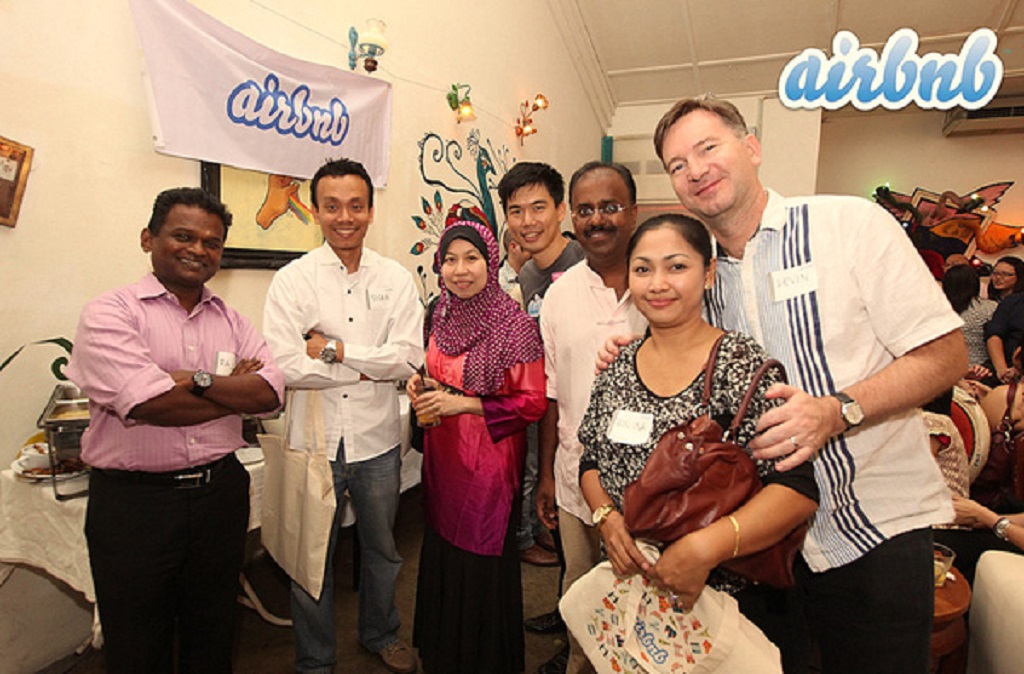Airbnb had an astounding valuation of US$10 billion, with revenues of US$250 million last year, the new economy magazine Fast Company reported recently. For the uninitiated, Airbnb is the company that pioneered the concept of allowing members to rent out their homes to others, and gaining popularity in Malaysia.
With listings of over half a million homes in nearly 200 countries, it is the poster child of the “sharing economy”. This new business model generally works well for people who own expensive items that they don’t use all the time (and thus are able to rent them out).
The sharing economy is a hot trend in the US and many other places abroad. But it’s still at its infancy here in Malaysia where people are used to buying and owning things rather than sharing for a fee, which is still quite an alien concept for most people. But it won’t be for long.
Like other hot trends that start out in the West, it will find its way here eventually. Remember how terrified everyone was of using their credit cards online because of fear of fraud? Now, most people have no qualms at all about booking hotels and airplane tickets or even merchandise online. It just takes getting used to for the comfort level to increase. In time, people here will also embrace the sharing economy.
There’s much to like about the sharing economy. It’s good for owners who can make extra cash on things that would have been underused otherwise. Renters benefit because the costs are much lower than buying. And, it’s even very green. Fewer big ticket items being bought means fewer of those items need to be built and thus, less impact on the environment.
But there is one major stumbling block for the sharing economy. And it’s an issue all around the world. It will be, too in Malaysia when the sharing economy takes hold here. I’m talking about regulation.
The sharing economy always starts out unregulated. Then as its impact starts to be felt, the authorities will be moved to act. And rightly so. Traditional industries are regulated. It would be an unfair advantage for sharing economy start-ups to be able to go do as they wish.
Eric Brousseau, an economics professor at the University Paris-Dauphine, told the BBC that regulation always catches up eventually. He noted that when French farmers first began turning their homes in bed and breakfast businesses, they were left to go about their business unfettered. But now these informal inns are subject to regulations as well.
If you are planning to start a business built around the concept of sharing for a fee, what can you do knowing that your business is likely be regulated eventually?
Larry Summers, President Emeritus at Harvard University and former Secretary of the Treasury for President Bill Clinton, recently co-wrote an article for the Harvard Business Review touching on how sharing economy companies should deal with regulators.
Among his most salient points are:
Be proactive with regulators: Summers recommends that companies explain their business models to regulators rather than wait for the regulators to come knocking. This is so regulators can classify them according to existing regulatory infrastructure rather than to ban them outright.
Be responsive to regulators’ concerns. Sharing economy business models do raise legitimate concerns about user safety, privacy and access. Summers says companies should respond to such concerns to build credibility with regulators.
Speak together. Summers advises that companies in the same sharing economy sector form industry associations to represent a shared point of view rather than for each company to approach regulators independently.
Make a case for value provided: Rather than making generic statements about the usefulness of the sharing economy, Summers says it helps to have concrete data. For example, Airbnb recently commissioned a study that found that, because an Airbnb rental tends to be cheaper than a hotel, people stay longer and spent $1,100 in the city, compared with US$840 for hotel guests.
The sharing economy is coming and Malaysian entrepreneurs will want to be a part of this new economy. They’d do well to listen to adopt best practices like the ones Summers mentions in order to be on the regulator’s good side, so their business can prosper rather than get halted. Next week, I will touch on the concept of “The Streaming Economy”.
Oon Yeoh is a new media consultant




